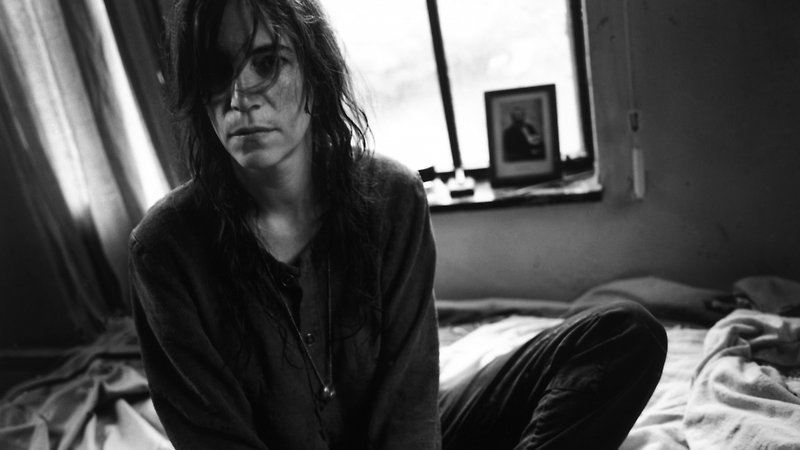An intimate, lyrical portrait of punk pioneer Patti Smith. "If Patti Smith has ever mattered to you, you'll remember why when you see Dream of Life." — Film Comment

Screened as part of NZIFF 2008
Patti Smith: Dream of Life 2008
"If Patti Smith has ever mattered to you, you'll remember why when you see Steven Sebring's Patti Smith: Dream of Life. Intimate, shape-shifting, expressively shot in lyrically grainy 16mm, it's as close to the self-portrait one imagines Smith herself would have made were film her medium." — Amy Taubin, Film Comment
Steven Sebring's portrait of Patti Smith is so up close and personal that it feels like an audience with the punk-princess-turned-rock-goddess herself. The film eschews narration in favour of Patti's own reminiscences and recitations, and the moody black and white photography references both the iconic Robert Mapplethorpe photographs that graced her early albums and D.A. Pennebaker's milestone document of Dylan in ‘65, Don't Look Back, as key a reference point for this film as it was for Patti's groundbreaking 1970s persona.
There's plenty here to reinforce the indelible, defiant image of shamanistic androgyny created by her phenomenal 1975 debut album Horses, not least among the fiery live performances of key tracks, but the big surprise is how laid-back, sweet and completely open Patti is when showing us her favourite childhood dress, or introducing us to her indulgent parents. Family is a key theme in the film, from Patti's celebrity hangers-on (Michael Stipe and Thom Yorke drop by for a spot of forelock-tugging, and there's a charming jam with Sam Shepard), to the surrogate family of her band (including long-term collaborators Lenny Kaye, Jay Dee Daugherty and Tom Verlaine), to her children and sometime collaborators Jackson and Jesse, to the sublimated but central presence of her late husband, Fred ‘Sonic' Smith of the MC5.
The film is also an oblique travelogue, but one which traverses Smith's psychic terrain as much as the itinerary of her world tour, taking in the Middle East (to the tune of ‘Radio Baghdad') and pilgrimages to the grave of William Blake and the childhood haunts of Arthur Rimbaud.